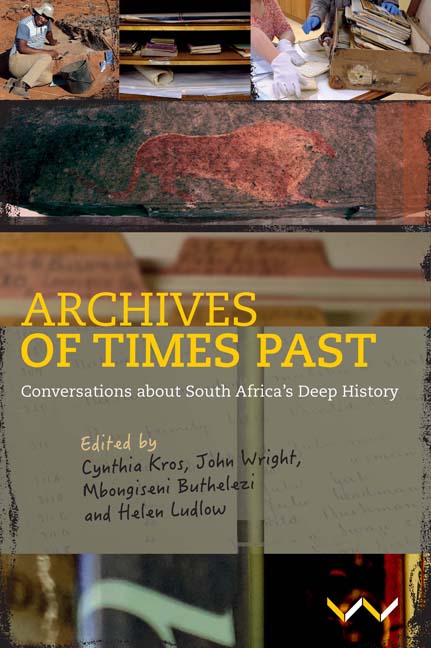Book contents
- Frontmatter
- Contents
- List Of Illustrations
- Acknowledgements
- Editorial Note
- Map
- PART I FIRST THOUGHTS ABOUT THE ARCHIVE
- PART II COMMENTARIES AND CONVERSATIONS
- PART III BECOMING EXPLORERS
- PART IV ENGAGING WITH ARCHAEOLOGY AND ROCK ART
- PART V CONFLICTING OPINIONS
- PART VI FURTHER THOUGHTS
- Glossary
- Contributors
- Index
Chapter 11 - Nervously Entering the World of Carl Hoffmann and His Interlocutors
Published online by Cambridge University Press: 26 May 2022
- Frontmatter
- Contents
- List Of Illustrations
- Acknowledgements
- Editorial Note
- Map
- PART I FIRST THOUGHTS ABOUT THE ARCHIVE
- PART II COMMENTARIES AND CONVERSATIONS
- PART III BECOMING EXPLORERS
- PART IV ENGAGING WITH ARCHAEOLOGY AND ROCK ART
- PART V CONFLICTING OPINIONS
- PART VI FURTHER THOUGHTS
- Glossary
- Contributors
- Index
Summary
INTO THE REALM OF PAPER AND INK
When I enrolled for an honours degree at the University of Pretoria in 1994, I had to choose between history and literature as my area of specialisation. History won the day, but I was not sad about it. Both literature and history are ‘story subjects’, after all. I thought that the library, my comfort zone, would remain my laboratory. I had no intention of doing fieldwork. The mere thought of finding my way on a map, or interpreting sites and settlements, was a bit too much for this rather shy and impractical 21-year-old. The idea of interviewing people in person was even scarier.
Yet I was curious about the past. The year 1994 was when Nelson Mandela became president. The possibilities of getting beyond apartheid ways of thinking looked so promising. I wanted to find out what life was like before 1948 and, further back, before segregation. And then way back: before the British conquered the Boers, and before the Boers conquered the African people in the northern part of the old Transvaal Republic, the area now known as Limpopo Province. In the 1970s, historians such as Peter Delius and Philip Bonner had explored the history of the Pedi kingdom and the Swazi kingdom respectively. They used mainly documentary sources, but they also researched accounts of the past as told to them by knowledgeable people whom they interviewed.
The books which Delius and Bonner had written were used by our lecturers to teach the history of African societies in southern Africa. A number of anthropologists had written studies of people's ‘customs’ in northern kingdoms such as those of the Lobedu, the Venda and others. A handful of archaeologists had also done research into the earlier history of these regions. But no one had explored this history in any depth. It was Professor Johan Bergh, the supervisor of my history honours essay, who first pointed me towards exploring documentary sources in this field.
In the region that is now Limpopo Province, many of the earliest documents were written by missionaries. For my honours essay, I compared the diaries of an Anglican clergyman and a Berlin missionary who had observed the Transvaal Boers’ military campaign against the Hananwa kingdom in 1894.
- Type
- Chapter
- Information
- Archives of Times PastConversations about South Africa's Deep History, pp. 156 - 171Publisher: Wits University PressPrint publication year: 2022

